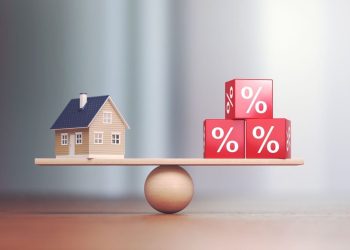In November, Americans’ confidence in home-buying ignited, boosted by low mortgage rates, according to Fannie Mae’s Home Purchase Sentiment Index®, newly released.
As a consumer measure, the Home Purchase Sentiment Index gauges optimism and perceptions, based on questions such as “Is it a good time to buy a home?” Last month, the Index rose to 91.5—nearing a record set this year, and up 5.3 points year-over-year.
So, is it a good time to buy a home?
Sixty-one percent of Americans—an increase—say yes, but 29 percent believe not, according to Fannie Mae’s survey.
What about selling?
Sixty-six percent of Americans believe it’s prime selling time—a minor slip—but 26 percent believe not.
Will home prices rise?
Forty-four percent of Americans peg prices to rise in the upcoming year, 10 percent believe they’ll come down, and 40 percent believe they’ll remain unchanged.
…and mortgage rates?
Eleven percent of Americans believe there’ll be a decrease in mortgage rates in the upcoming year, while 39 percent believe they’ll increase, and 44 percent say they’ll stay unchanged.
According to Fannie Mae Chief Economist Doug Duncan, despite low rates, affordability is being undermined, and it’s because of the lack of listings.
“While low rates have helped boost housing affordability compared to last year, the HPSI has increased only moderately in that timeframe,” Duncan says. “This may be due in part to the ongoing challenge of tight housing supply, especially in the starter-home market. That lean supply means the recent mortgage rate decline—holding payment size constant—allows borrowers to increase bid prices for homes. As a result, home prices are propelled higher, mitigating the benefit of lower borrowing costs for many borrowers.”
Affordability improved moderately in the third quarter, according to the National Association of REALTORS®—but buoyed by rates, not higher incomes. (More: Kudos, Low Rates: Homeownership Rises)
“The housing market has been seeing reacceleration in home prices as more buyers want to take on lower interest rates in the midst of insufficient supply,” Lawrence Yun, chief economist at NAR, said. “Unfortunately, income and wages are not rising as fast and will make it difficult to buy once rates rise.”
 Suzanne De Vita is RISMedia’s online news editor. Email her your real estate news ideas at sdevita@rismedia.com.
Suzanne De Vita is RISMedia’s online news editor. Email her your real estate news ideas at sdevita@rismedia.com.











